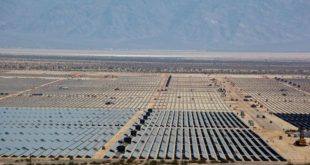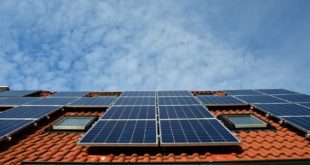 We no longer need to burn fossil fuels to produce usable energy. Today there are many alternative forms of usable energy available to us. Choosing to utilize other forms of renewable energy such as solar panels not only reduces our carbon footprint and the impact that we have on the world, but also provides us with a sustainable energy source that will be around for years to come.
We no longer need to burn fossil fuels to produce usable energy. Today there are many alternative forms of usable energy available to us. Choosing to utilize other forms of renewable energy such as solar panels not only reduces our carbon footprint and the impact that we have on the world, but also provides us with a sustainable energy source that will be around for years to come.
The importance of solar power
The surface of the earth receives enough energy in one hour to meet all of the world’s energy needs for one year. By harnessing this energy using solar photovoltaic (PV) technology, we can meet all of our energy requirements. Solar is the perfect example of a form of energy which is truly renewable, as harnessing solar power puts no additional strain on the sun and can be seen as utilizing a vital resource. Scientists believe that the sun will begin to run out of hydrogen (its fuel) in about 5 billion years, thus solar power is a viable option for years to come.
There are many reasons to invest in solar panels. For a domestic installation, the government-introduced Feed-in Tariff ensures a great return on investment of 11% on average. This is significantly higher than savings accounts or ISAs. Another key reason is that by generating your own electricity, you need to buy much less from the national grid, meaning savings on electricity bills, another financial incentive.
The environmental benefits are a key reason for investing in solar panels. These have been overshadowed recently by the financial incentives that were introduced by the government with the Feed-in Tariff (FIT). Yet it is important to remember that the FIT was introduced for environmental reasons, as a way of encouraging individuals and organizations to invest in renewable energy sources as this would help to meet the country’s environmental targets and reduce our nation’s carbon footprint.
Our carbon footprint
Your carbon footprint is a gauge of the impact that your activities have on the environment, measured by CO? emissions. Our carbon footprints are mainly produced from the burning of fossil fuels for transportation and heating, production and shipping. These can be reduced by making lifestyle choices reducing the amount of CO? produced. Buying local produce where possible is an easy way to reduce our carbon footprints, as these items will have no carbon emissions associated with them.
Choosing to heat or power your home or organization through renewable energy sources is one of the most significant choices that you can make to reduce your carbon footprint. This is because heat and power are some of the biggest producers of CO? and can therefore result in some of the most significant reductions.
The UK government is responsible for ensuring that the carbon emissions for the country are reduced, but in order to succeed this needs to be tackled by individuals. Crucially the clean green electricity that a solar PV system produces will be used in the home, replacing the electricity that you would have bought from your energy supplier. Thus you are significantly reducing the amount of energy derived from burn fossil fuels that you consume.
Other sources of renewable energy
Once you install solar panels on your home, the environmental benefits are immediate and significant. The source of the energy that is generated is free, as the sunlight hitting the panels is converted into free, clean green electricity. However there are other forms of renewable energy such as ‘clean fuels’, which, because of physical or chemical properties, create less pollution than fossil fuels do. In general, the hydrocarbons emitted from these fuels are much less, and the hydrocarbons they do emit are much less toxic. Clean fuels can be chosen as alternatives to petrol and gasoline which fuel road vehicles. These will allow individuals and businesses to reduce their carbon footprints from the life-cycle of the products that they use.
 Alternative Energy HQ solar power for homes, wind energy, and bio fuel issues
Alternative Energy HQ solar power for homes, wind energy, and bio fuel issues





